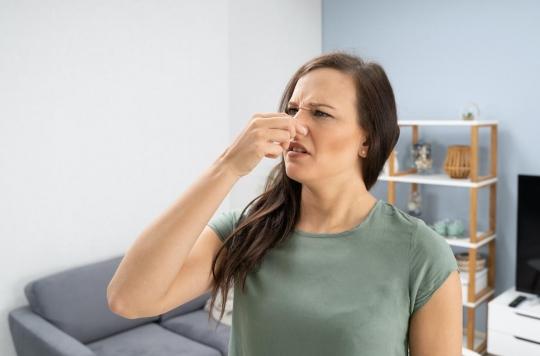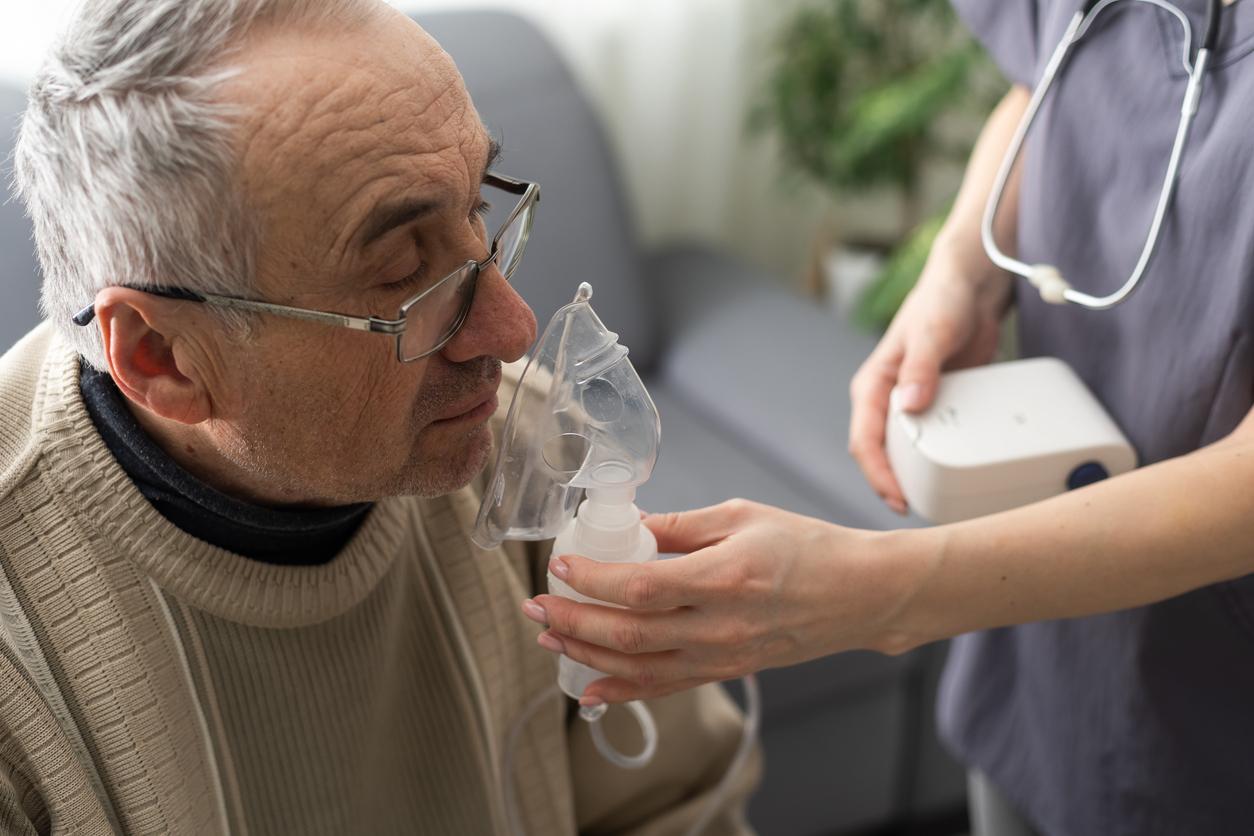Fantosmia, the olfactory hallucination, would be a new symptom of Covid-19 and would be similar to the unpleasant sensation of constantly smelling a smell of rotting waste, cigarettes or even a familiar perfume which quickly becomes unpleasant.

- Phantosmia is an olfactory hallucination that gives the sensation of a constant smell.
- Phantosmia is a common condition for respiratory diseases and often follows the period of anosmia when the patient can smell her.
- Fantosmia may be more severe in patients with Covid-19 than in those with another respiratory disease.
Anosmia, or the loss of smell, with the loss of taste, is one of the characteristic symptoms of a Covid-19 infection. Researchers have managed to explain it, pointing to the role of ACE2 receptors which allow the virus to penetrate cells and cause edema. A new study reports another consequence of Covid-19 infection: phantosmia. This olfactory hallucination would affect many infected people as revealed by a study presented by the Global Consortium of Chemosensory Research during a webinar which took place on September 26th.
Covid-19 can cause a number of smell distortions | Health24 #GCCR mentioned! https://t.co/Sdy1W74UW8
— @GCChemosensoryR (@GCChemosensoryR) September 30, 2020
Fantosmia follows anosmia
Phantom odors, almost exclusively unpleasant, would constitute a new symptom of Covid-19. For some, these odors are similar to the smell of cigarettes, rotting waste, oil, or even familiar fragrances that become unbearable. “The perfume, aftershave and shower gel all smell like cleaning products. My favorite wine now tastes sick, just like pineapple and soft cheesestestified Karen Thomas, questioned by the DailyMail. I kept asking my husband if something was burning, and he had no idea what I was talking about. More recently I started smelling gasoline.”
Phantosmia is a common condition for respiratory diseases and often follows the period of anosmia when the patient can smell her. A larger study done on healthcare workers will soon be published by the Global Consortium of Chemosensory Research. This fact was phantasmia in several patients, ranging from a simple burning sensation in the nose to horrible smells. “Phantosmia is very common in upper respiratory tract infections and it always starts with a loss of smell“, says Professor Carl Philpott, of Norwich Medical School, to the British media.
Two days of nose rehabilitation
Fantosmia may be more severe in patients with Covid-19 than in those with another respiratory disease. The virus affects taste buds which work with receptors in the nose to form our entire sense of smell. In addition, Covid can affect areas of the brain related to the perception of smell, leading to even more severe and long-lasting symptoms. “A rose, for example, has 13 odor molecules, which are picked up by different receptors. But if only six of these smell receptors work, a rose won’t smell like a rose.”, decrypts Carl Philpott.
The researcher adds that he receives almost daily patients who report unpleasant phantom odors. He specifies that treatments exist to rehabilitate the nose. For this, patients are given jars containing paper impregnated with distinctive scents – such as clove, lemon, rose and eucalyptus – which they must smell twice a day. This helps stimulate the receptors, encouraging them to heal faster.

.

















